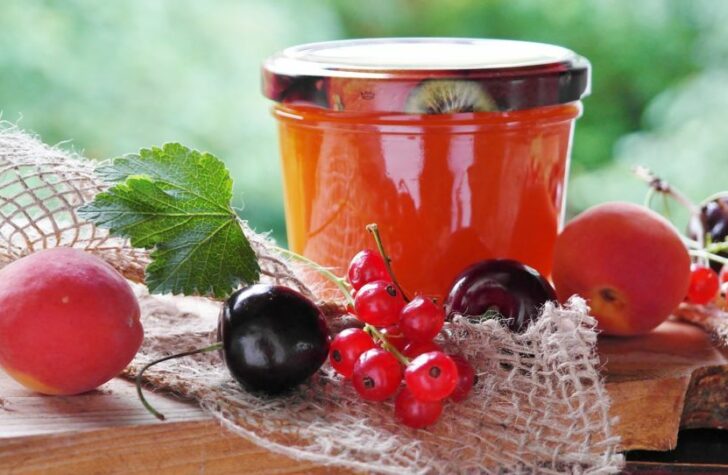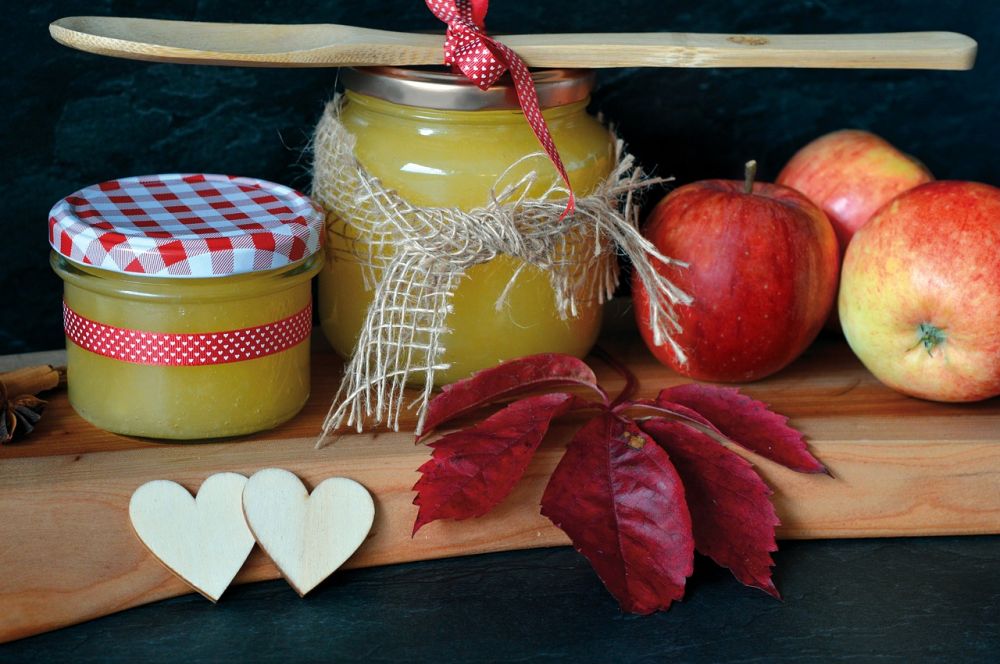Vegan Desserts: A Delicious and Healthy Option for Food Enthusiasts

Introduction:
Vegan desserts have gained significant popularity in recent years, not only among vegans but also among food enthusiasts who are looking for healthier alternatives. These desserts are made without any animal products, such as eggs, dairy, and honey, making them suitable for those following a vegan lifestyle or simply seeking a guilt-free indulgence. In this article, we will provide an in-depth overview of vegan desserts, including their types, popularity, and differences. We will also delve into the historical aspects of vegan desserts and highlight their advantages and disadvantages. So, let’s dive into the world of vegan desserts and explore the sweet possibilities it offers.
I. What are Vegan Desserts?
Vegan desserts are sweet treats that are free from any animal-derived ingredients. They utilize plant-based substitutes to recreate the flavors and textures typically associated with traditional desserts. These desserts can range from simple, fruit-based creations to intricate, decadent masterpieces. Vegan desserts can be enjoyed by anyone, regardless of dietary restrictions, and offer a wide variety of flavors to cater to diverse tastes.
A. Types of Vegan Desserts

1. Cakes and Cupcakes: Vegan cakes and cupcakes are made without eggs or dairy products, using plant-based alternatives like applesauce, mashed bananas, or flaxseed meal as binders. These desserts can be flavored with various fruits, chocolates, or spices, offering a myriad of options for every palate.
2. Pies and Tarts: Vegan pies and tarts often use coconut cream or cashew as a substitute for dairy-based cream fillings. Nut-based crusts and fruit compotes or purees are commonly used to create delicious vegan versions of these classic desserts.
3. Cookies and Brownies: Vegan cookies and brownies substitute butter and eggs with plant-based oils, such as coconut or vegetable oil, and ingredients like flax eggs or applesauce for binding. These desserts can be made with flavorsome add-ins like nuts, chocolate chips, or dried fruit.
4. Ice Cream and Sorbets: Vegan ice creams and sorbets forego dairy and rely on bases like coconut milk, almond milk, or cashew cream to achieve creamy textures. These frozen treats can be infused with various flavors, such as vanilla bean, chocolate, or even exotic fruits like mango or passion fruit.
5. Puddings and Mousses: Vegan puddings and mousses are created using ingredients like avocados, silken tofu, or nut butters to achieve a smooth and velvety consistency. These desserts can be flavored with cocoa powder, fruits, or spices for a delectable experience.
B. Popularity of Vegan Desserts
Vegan desserts have witnessed a surge in popularity, not only among vegans but also among individuals seeking healthier alternatives and tasty treats. The demand for vegan desserts has led to increased availability in bakeries, restaurants, and even online platforms. The rise of veganism as a lifestyle choice has significantly contributed to the growing popularity of these desserts, with individuals realizing the health benefits and ethical considerations associated with plant-based eating.
II. Quantitative Measurements of Vegan Desserts
Quantitative measurements of vegan desserts can provide insights into various aspects, such as their nutritional value, environmental impact, and market trends. Some noteworthy measurements include:
A. Nutritional Value: Vegan desserts tend to have lower saturated fat content and cholesterol levels compared to their non-vegan counterparts. However, the sugar content and calorie count may vary depending on the ingredients used. It is essential to pay attention to portion sizes and opt for desserts with natural sweeteners or low-glycemic alternatives when aiming for a healthier choice.
B. Environmental Impact: Vegan desserts have a lower environmental impact compared to desserts containing animal products. The production of plant-based ingredients requires fewer resources, such as water and land, and generates fewer greenhouse gas emissions. Choosing vegan desserts can contribute to sustainability efforts and help reduce our carbon footprint.
C. Market Trends: With the growing demand for vegan options, the market for vegan desserts has expanded significantly. Data shows a rise in the availability of vegan dessert products and an increase in vegan dessert recipes online. This indicates a shift in consumer preferences towards healthier and more sustainable options.
III. Differences among Vegan Desserts
Despite being free from animal products, vegan desserts exhibit variations in terms of taste, texture, and ingredients used. These differences arise due to the diverse approaches and creativity of vegan chefs and bakers. Here are some factors that contribute to the differentiation among vegan desserts:
A. Ingredients: Vegan desserts utilize a wide range of plant-based ingredients to replace animal-derived components. For example, while one recipe may use coconut cream for a creamy texture, another might opt for cashew cream. These ingredient choices impact the overall flavor profile and mouthfeel of the dessert.
B. Texture: Since traditional desserts often rely on eggs and dairy for their texture, vegan desserts employ substitutes like aquafaba (chickpea brine) or silken tofu to achieve desired consistencies. Consequently, some vegan desserts may have a slightly different texture compared to their non-vegan counterparts.
C. Flavor Profiles: Vegan desserts can explore unique flavor combinations. By incorporating spices, herbs, or exotic fruits, these desserts offer a diverse range of taste experiences that can pleasantly surprise even non-vegans.
IV. Historical Overview of Advantages and Disadvantages
Throughout history, vegan desserts have gone through transformations, leading to both advantages and disadvantages.
A. Advantages:
1. Health Benefits: Vegan desserts often contain less saturated fat and cholesterol and more fiber and essential nutrients compared to traditional desserts. They can contribute to a well-balanced diet, promote weight management, and reduce the risk of certain diseases.
2. Ethical Considerations: Vegan desserts align with ethical values by excluding animal products. They provide an opportunity for individuals to embrace compassion towards animals and minimize the exploitation of living creatures.
3. Environmental Sustainability: The environmental impact of vegan desserts is generally lower due to a reduced reliance on animal agriculture. Vegan desserts contribute to sustainable food systems, conservation of natural resources, and the preservation of biodiversity.
B. Disadvantages:
1. Availability and Accessibility: While the availability of vegan desserts has increased over time, they may still be less accessible in certain regions or establishments. This limitation can pose challenges and restrict choices for individuals seeking vegan dessert options.
2. Taste and Texture Differences: Some individuals may find that vegan desserts possess distinct tastes and textures compared to traditional desserts. These differences can be a barrier for those accustomed to the familiar flavors and textures of non-vegan desserts.
[INSERT VIDEO HERE]
In conclusion, vegan desserts offer a wide array of flavorful and creative options for those seeking guilt-free indulgence. From cakes to ice creams, these desserts cater to diverse tastes and dietary preferences. The popularity of vegan desserts continues to grow, driven by health-conscious consumers and the rise of veganism worldwide. By understanding the variations among vegan desserts and their advantages and disadvantages, individuals can make informed choices, both for their palates and the planet. So why not embark on an adventure into the world of vegan desserts and savor the deliciousness they have to offer?

















